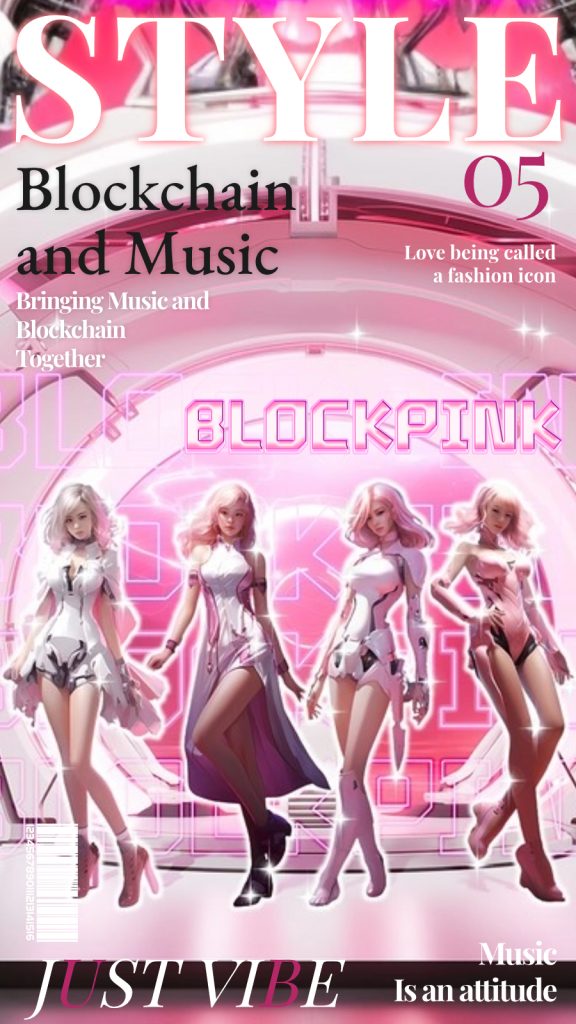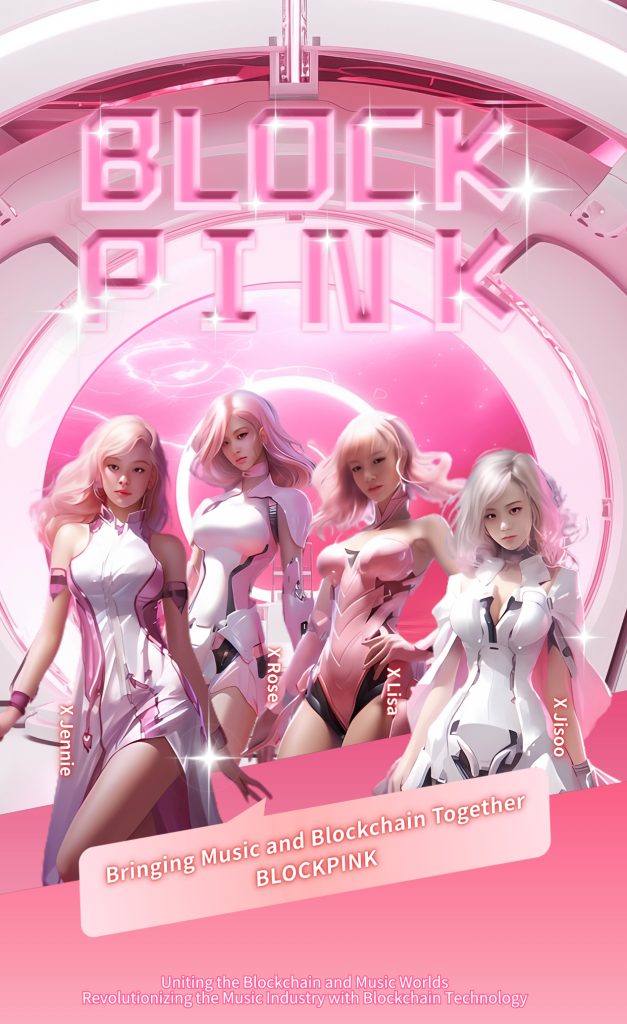Introduction:
In the evolving landscape of music and technology, virtual idols represent a revolutionary leap. They blend the allure of pop culture with the limitless possibilities of digital innovation. One such groundbreaking example is BLOCK PINK, a virtual idol group inspired by the phenomenal success of BLACKPINK and integrated with blockchain technology. This article delves into the future of virtual idols, using BLOCK PINK as a case study to explore this fascinating intersection.

The Rise of Virtual Idols:
The concept of virtual idols isn’t entirely new. Pioneers like Hatsune Miku have paved the way, showing that digital personas can captivate audiences worldwide. However, with advancements in technology, especially in AI and blockchain, virtual idols like BLOCK PINK are set to take this concept to unprecedented heights.

BLOCK PINK- A Case Study:
BLOCK PINK stands out as a prime example of this new era of virtual idols. The group, conceptualized in the mold of BLACKPINK, offers not just music but an immersive experience. Their existence on a blockchain platform adds layers of interaction and ownership, previously unseen in the music industry.

Revolutionizing Fan Engagement:
Virtual idols offer a unique form of fan engagement. Fans of BLOCK PINK, for instance, can interact with the idols in a virtual space, transcending physical and geographical limitations. Blockchain technology further enhances this by allowing fans to own a part of their idol’s world through tokenization, creating a deeper sense of connection and investment.
The Impact on the Music Industry:
The emergence of virtual idols like BLOCK PINK signifies a potential shift in the music industry. With blockchain technology, issues of rights and royalties can be addressed more transparently, ensuring fair compensation for creators. Moreover, virtual concerts and events open new revenue streams and creative possibilities, redefining the traditional concert experience.

The Future Is Limitless:
The future of virtual idols is as limitless as the technology that powers them. AI advancements could lead to more personalized and interactive experiences with virtual idols, blurring the lines between reality and virtuality. Furthermore, as blockchain technology evolves, we could see a more decentralized approach to music production and distribution, giving rise to a new era of artist-fan relationships.

Conclusion:
BLOCK PINK is more than just a virtual idol group; it represents a glimpse into the future of entertainment, where technology and creativity converge to create unprecedented experiences. As we look ahead, the potential of virtual idols in reshaping the entertainment landscape is immense, promising a world where digital and physical realities coalesce seamlessly.

